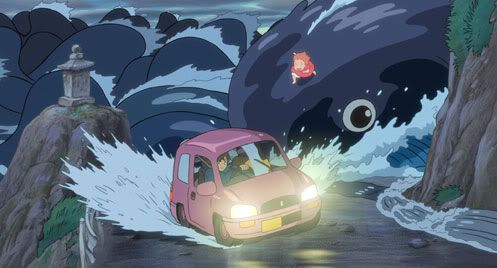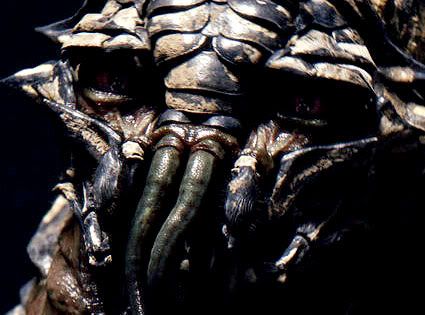
Studio Ghibli and Pixar are often viewed as equals when comparing both their body of work and their inner workings as a company. Both are overflowing with imagination, integrity, and a deep-rooted love for the medium. Both produce films that are lightyears ahead of the other animation studios, both visually and with masterful storytelling. The attention to detail and vast effort put into their films result a higher caliber of filmmaking. They don't make "kid's movies," they make movies that are marketed to children, because animation equals kids. But what sets Ghibli apart, and puts them closer to my heart, is their love for hand drawn animation. As much as I love Pixar and their films...I will never love computer animation. The layers of hand-painted cells, each one every bit as important as the last, all starting out as a single line from a pencil. I feel more connected to and have more respect for hand drawn art than I do something run through a computer, made up of microscopic bits of data; rendered and perfect. I want to see flaws and imperfections. Because through imperfection I see perfection. I see beauty! And Ponyo is beautiful. You'll notice I haven't really said anything about the movie itself. I don't intend to. The story is simple and it's themes are universal. It doesn't tread any uncharted waters. But the magic of it, for me, is unreal. I don't mean the magic of the world in the story, I mean the hold the film had on me. Jaw wide, head tilted, eyes absorbing eveything they see. Feeling like child again, but not at all. That's what makes Miyazaki a master at his craft. No matter your age, child and adult are synonymous when watching his films. A G rating doesn't have to denote "kid's movie." This is a film for anyone who dreams, loves, hopes, laughs, cries, feels. I'm sure Ponyo isn't going to make a profound impact on your life, or make you stand in the street shouting praise to the heavens, but I hope it will touch you in some way.
I dare you to watch it and not smile uncontrollably.
